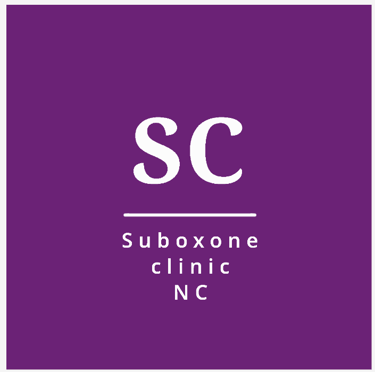How to Regain Happiness After an Addiction to Opioids
If you're like me and have a history of opioid addiction but aren't taking them in a disorderly manner anymore, you might be wondering what to do next—especially if you've only recently stopped using.
If you're like me and have a history of opioid addiction but aren't taking them in a disorderly manner anymore, you might be wondering what to do next—especially if you've only recently stopped using. The first few weeks and months after a binge of opioids are notoriously challenging, however opioid use disorder (MOUD) drugs like buprenorphine and methadone can help (abstinence, managed use, other medications, and other forms of assistance are okay too). Nothing, however, will make early remission simple. Living in the aftermath of addiction can be difficult, whether it's re-balancing your neurochemistry, dealing with underlying trauma and/or mental illness, repairing finances, reconnecting with friends and family you may have lost touch with, or simply adjusting to life without being high on opioids. It is, however, not insurmountable. People who have just gone into remission from opiate addiction sometimes express boredom and a lack of excitement. That's understandable. Dopamine is the neurochemical responsible for pleasure, and opioids provide a large dopamine boost. From a physiological as well as a practical one, adjusting to life without that artificial input of dopamine is difficult. Here are a few things you may do to assist yourself re-establish a pattern of happiness and pleasure following opiate addiction:
Exercise
Sorry for the inconvenience. That may seem counter-intuitive if you're not a huge workout aficionado. Exercise can be difficult and exhausting, especially if your body isn't used to it (as mine wasn't after years of active addiction). Regular exercise, on the other hand, releases important neurochemicals that aid in addiction recovery as well as cardiovascular and other forms of physical fitness. And the more you do it, the easier it becomes (I promise). Furthermore, completing a challenging workout serves as a good reminder that it is possible to endure painful and demanding situations without the use of medications. Fortunately, the term "exercise" encompasses a wide range of activities. Running and biking both give me a great buzz (have you heard of runner's high? It's true), but even a short walk outside may help lift my spirits and keep my body in shape when I'm not in the mood for something strenuous (plus you can do it while social distancing, so pandemic friendly). Personal favorites include stretching and yoga.
Developing a New Ability
It doesn't have to be a particularly difficult task. In fact, it's probably best if it isn't since addiction teaches us to expect rapid reward, and the struggle of learning anything difficult could be more triggering than beneficial. Learning a manageable new talent, on the other hand, may be immensely rewarding for the same reason! You'll have to put in some effort, and you won't be able to perfect it right away, but once you do, you'll be very proud of yourself. Move on to something a bit more challenging once you've achieved one straightforward goal, and so on. You'll have fun, master new abilities, and retrain your brain to comprehend that patience may yield excellent benefits as you develop. By the way, origami was my new expertise.
Making Friends with Others
This is more difficult during a pandemic, but with improved vaccines, social distancing measures, and virtual alternatives, meeting and connecting with new individuals is still conceivable. By the way, this isn't a romantic euphemism. There are several opportunities to socialize and have fun. Addiction rehabilitation groups such as AA/NA, SMART Recovery, and Refuge Recovery are favored by some. That's great if that's your thing. You don't have to worry about being judged because you have a history of addiction. However, forming friends with other individuals in early recovery while you're also in early recovery/remission has the potential of triggering you if they return to active use. Of course, everyone is different, but I know that being close to people who actively use is one of my major triggers during early remission. If you have additional hobbies, you might want to look into local special-interest groups. Even if you attend recovery groups and make friends there, interacting with individuals who share your other hobbies can help you reconnect with those interests while also allowing you to make new connections. There are also friend-finder applications, which can be hit or miss, but hey, why not give it a shot?
Humans are sociable creatures that thrive on interaction with others. It's why so many individuals have found this pandemic to be so tough and triggering. Healthy relationships are essential, yet active addiction can be quite isolating. Making friends can assist in breaking the cycle of loneliness and over-concentration on drug usage that can occur during addiction (but please do it safely; the pandemic is still happening).
Remind yourself that you are deserving of respect.
You are, after all. So much of today's message teaches us that we are unworthy of fundamental human decency. It can be difficult to comprehend ideas like child services removing kids for positive toxicologies alone, films that make drug-using characters appear like zombies, and advertising warning them to keep their distance from other drug-using teens. However, just because a concept is popular does not guarantee it is correct. And those notions are unquestionably incorrect. I mean, I'm sure the caseworkers, film crew, and advertising teams are all caffeine addicts. That's a substance. Many of them are likely to consume alcoholic beverages and to use marijuana (no, definitely). I'm sure many of them use other substances as well. The divide between some substances and drug users who are deserving of basic dignity and those who are not is arbitrary, classist, and racist. It's a toxic byproduct of the drug war and the now-debunked "crack baby" era. It's a fabrication. As a result, keep that in mind. If it helps, say it out loud in the mirror.
